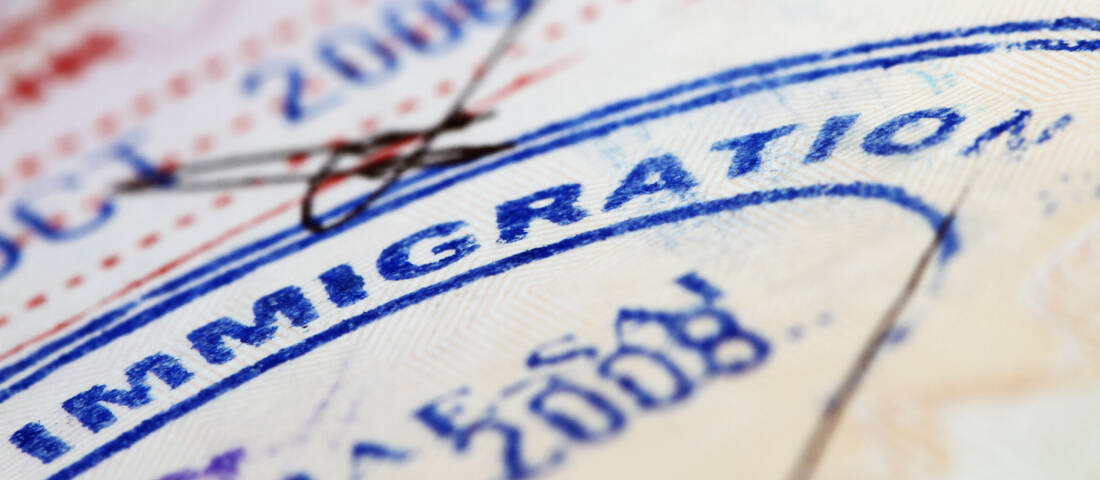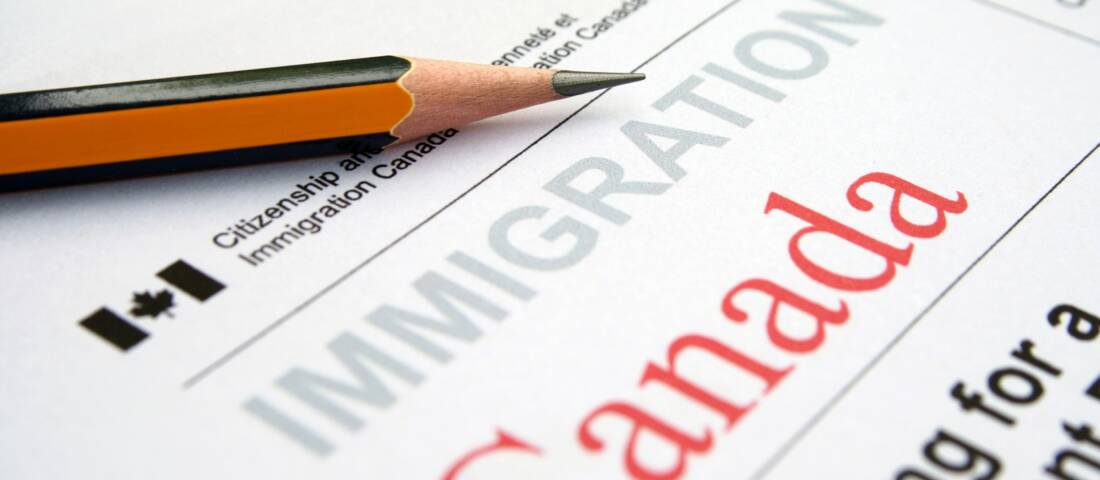BOOK YOUR FREE CASE EVALUATION
Don't Get Scammed!
March is Fraud Prevention Month in Canada. Immigration, Refugees and Citizenship Canada (IRCC) works to raise awareness about the different types of immigration fraud, how to recognize scams and fraudulent websites, how to properly choose an immigration or citizenship lawyer, and how to report fraud.
“Immigration fraud targets people who want to come to Canada in good faith. Sadly, the pandemic has exacerbated these troubling activities, with new ways for dishonest individuals to defraud clients. That’s why we’re redoubling our efforts to combat fraud. It’s important that anyone applying to visit or immigrate to Canada knows the facts."
- The Honourable Marco E. L. Mendicino,
Minister of Immigration, Refugees and Citizenship

At Ackah Business Immigration Law, we hate to hear stories of people coming to us after they've already had a very bad experience with an immigration person who may not be licensed or regulated and they have lost all their money. And now they're starting all over again working with us.
- Check them out.
- Check their licensing
- Check their registration.
- Look online for referrals, testimonials and Google reviews.
And if you're not certain, don't engage them. Please, let's make sure you're not somebody who has suffered from fraudulent immigration representatives.
Learn More About How to Protect Yourself From Immigration Fraud and Scams
- Ghost Consultants and Immigration Fraud
- Misrepresentation: Document Fraud & Immigration
- International Students and Immigration Fraud
- March is Fraud Prevention Month: Be Ware of Immigration Fraud
Immigration Fraud Prevention
IRCC identifies four types of immigration fraud:
1. Document Fraud
It’s a serious crime to lie or to send false information or documents to Immigration, Refugees and Citizenship Canada (IRCC). This is a type of immigration fraud called “misrepresentation.”
What is considered misrepresentation? It's important that you understand that when you complete any application forms or provide information to the Canadian government, you must ensure that you are not misrepresenting. Whether it's intentional or unintentional you are responsible if there are errors in your application. You are the person who will be at risk if you unintentionally or intentionally misrepresent.
The fines and penalties for misrepresentation can be serious: it can be a ban of five years where you cannot come to Canada or apply for anything, whether it's a visitor, worker or permanent residence, and face a $100,000 fine or imprisonment.
Podcast: What You Need to Know About Misrepresentation, Document Fraud and Immigration
2. Marriage Fraud
It is a crime for a foreign national to enter into a false marriage and marry a Canadian citizen or permanent resident for the purpose of entering or working in Canada. IRCC considers marriage fraud and sham marriages, including a marriage of convenience, a serious issue and Canadian citizens or permanent residents who engage in marriage fraud for the purpose of immigration may be charged with a crime.
Read More: Marriage Fraud: How Do I Prove My Spousal Application Is Legitimate?
3. Adoption Fraud
Adopting a child from overseas is a wonderful way to grow your family but the immigration laws can be very confusing. Adoption fraud is costly and can be heartbreaking. When considering an intercountry adoption, IRCC advises:
Although the vast majority of adoptions progress smoothly, adoptive parents should use caution throughout the process.
You should contact the government of the province or territory you live in to obtain the most up-to-date information about the adoption process, and to ensure the adoption meets all their requirements.
To avoid unnecessary expense and disappointment, adoptive parents shouldn’t plan to return to Canada with the adopted child until they know for certain all immigration or citizenship requirements have been met.
4. Internet, Email and Phone Scams
International students have recently been the target of phone scams where the caller identifies themself as an IRCC officer and demands money in order to avoid deportation. IRCC does not request payment of fees by telephone.
IRCC advises that if it is too good to be true, it probably is. Immigration scams include:
- identity theft
- unlicensed and unregulated immigration consultants, aka ghost consultants
- theft from your bank account or credit card and
- computer viruses sent via email
- fake immigration websites
- promises of a job
Canada immigration lawyer Evelyn Ackah was interviewed about ghost consultants and immigration fraud by Calgary EyeOpener.
Listen to Evelyn Ackah discuss immigration fraud on Calgary Eyeopener
To report immigration fraud, call the Canada Border Services Agency (CBSA) Border Watch Toll-Free Line at 1-888-502-9060. Learn more about how to protect yourself from immigration fraud: Protect yourself: detecting, avoiding and reporting immigration scam.
How to Hire an Immigration Lawyer
Immigration law is becoming more complex and challenging every day. Immigration applications can be refused due to minor oversights and omissions that can delay or negatively impact your business or your family reunification plans. By not using a lawyer you can be putting your business and your family at risk. Ackah Business Immigration Law can help you understand your rights and understand Canadian immigration policies as they apply to your unique circumstances.
There are many qualified, highly skilled immigration professionals that can help you with your immigration matter. Choose wisely, make sure they're licensed or regulated and have excellent online and referrals and online reviews and great referrals as well as testimonials. If you have any questions at all, feel free to contact us at Ackah Business Immigration Law, 403-452-9515.
See: 11 Questions to Ask Before You Hire an Immigration Lawyer in 2021








